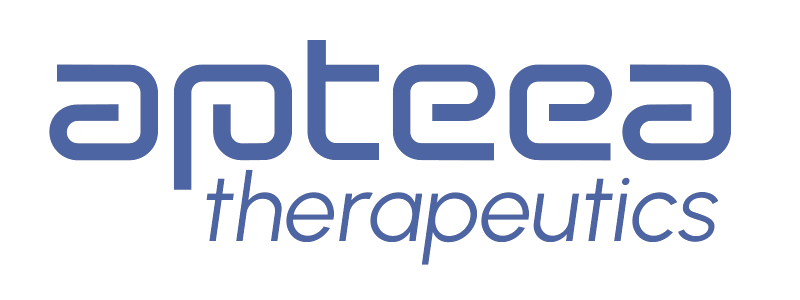Pipeline
Apteeus identified three opportunities of re-developing an active pharmaceutical ingredient for addressing a rare disease.
PEX deficiency - candidate TEE2555



The peroxisome is a cellular organelle involved in the metabolism of fatty acids and amino acids, the reduction of reactive oxygen derivatives and the synthesis of plasmalogens. The proteins necessary for peroxisomes are synthesized outside of the latter, in the cytosol. Peroxins are responsible for proteins import into the peroxisome and are encoded by the PEX genes. Deficiency in one of those peroxins causes peroxisomopathy.
We developed an original screening assay based on the use of patient primary cells to follow the biogenesis of peroxisomes. We have teste more than 2500 drugs and confirmed some of the results published in the litterature. We have identified a new family of molecules able to improve the biogenesis of the peroxisomes in the patient cells.
We prepared a plan for developing TEE2555 in this new indication. We are currently seeking resources for making it possible!
epidermolysis bullosa - candidate TEE002


Recessive dystrophic epidermolysis bullosa (ORPHA:79408) is a disease affecting the skin. Unable to produce type 7 collagen, the skin cells do not allow the adhesion of the epidermis to the dermis. This deficiency causes fragility of the skin, causing sores to appear. Healing is difficult and causes excessive skin fibrosis. A very disabling disease, it is often responsible for the appearance of fatal cancers.
Apteeus is involved in a project to reformulate & repurpose a molecule whose mechanism of action ultimately contributes to reducing skin fibrosis. Several demonstrations of effects now justify an experiment in a dedicated established model. We are carrying out this project in collaboration with the laboratory of Dr. Nyström.
Next step is to found resources for exploring this new opportunity for patients!
Anti-infectious - Candidate TEA001

Through its subsidiary APTEEA Therapeutics, APTEEUS is investing in a project to reformulate an active ingredient with anti-infectious properties. The new inhaled product will make it possible to treat several common pulmonary pathologies for which the medical need has remained unmet for many years. TEA001 will be combined with a latest generation inhalation device perfectly suited to elderly patients or patients suffering from respiratory insufficiency.
Collaboration
Apteeus is also making its technology and know-how available to collaborative projects.
repurposing program - EUROPEAN CONSORTIUM
SIMPATHIC

The SIMPATHIC consortium, led by Dutch University Medical Center Radboud and UMC Amsterdam, has developed a new approach to accelerate the use of existing drugs for patient groups with rare neurological disorders. The consortium received an 8.8 million euro grant from the Horizon Europe program to further develop this innovative method.
The SIMPATHIC consortium comprises 22 partners, including APTEEUS, research teams from Radboudumc, UMC Amsterdam and other academic centers in Europe and Canada, European patient organizations, companies and a European infrastructure network. The consortium’s innovative approach is expected to revolutionize drug development.
The program started in July 2023 and will last 5 years.
Completed Projects
The research programs conducted by Apteeus contribute to advancing our understanding of pathologies and their underlying causes in order to identify new therapeutics
INDIVIDUALIZED DISCOVERY
Hunter Syndrome, MPS2

Mucopolysaccharidosis type II (MPSII) (or Hunter syndrome) is a disease which affects the function of a lysosomal enzyme called iduronate-2-sulfatase. This enzyme is able to digest glycosaminoglycans (long linear polysaccharides) and its deficiency leads to an accumulation of these polysaccharides in whole the body. This accumulation impairs the biological balance.
Apteeus commits to this project in order to test 2600 compounds from its library on cells from a patient affected by MPSII. Based on LC-MS technology, Apteeus investigates to restore the level of glycosaminoglycans.
individualized discovery
Acid ceramidase deficiency

Ceramidase (acid) is a lysosomal enzyme involved in the recycling and catabolism of ceramides. Its deficiency leads to accumulation of ceramides in the lysosome and other organelles and disrupts cell metabolism (ORPHA:333 and 2590). Spinal muscular atrophy-progressive myoclonic epilepsy syndrome or SMA-PME is a manifestation of ceramidase deficiency affecting only tens of patients. This is an ultra-rare disease. Farber’s disease, whose symptoms are more severe and early, affects a few more patients.
After several months of individualized research, Apteeus identified several drug candidates that are still under investigation. Apteeus remains fully involved in the biochemical monitoring of children and collects information that could demonstrate the effect of treatment and limit the worsening of symptoms.
INDIVIDUALIZED DISCOVERY
krabbe disease

Krabbe disease (or globoid cell leukodystrophy) is a lysosomal disorder affecting the white matter of the central (CNS) and peripheral nervous systems (PNS) (ORPHA:487). It is a deficiency of the enzyme galactocerebrosidase (GALC) that causes the accumulation of psychosine toxic to oligodendrocytes and consequently demyelination of the CNS and PNS.
We developped an brand new in vitro assay using primary patient cells and we tested more than 2500 active pharmaceutical ingredient. We are currently analysing the results.
individualized discovery
ACOX1 deficiency

The ACOX1 protein, for Acyl-CoEnzymeA oxidase type 1, is a peroxisomal protein involved in the beta-oxidation of very long chain fatty acids in the peroxisome (ORPHA:2971). Peroxisomal acyl-CoA oxidase deficiency is an ultra-rare disorder. Its prevalence is unknown. Only a few dozen cases have been described in the medical literature.
Thanks to our technology based on liquid chromatography coupled with mass spectrometry, we identified TEE886, a drug candidate that restores a normal level of very long fatty acids in the cells of an ACOX1 deficient child. The child was compassionately treated with the candidate drug and monitored to evaluate the progress of his pathology under treatment. A case report is currently produced and will be published soon.
individualized discovery
d-bifonctionnal protein deficiency

Bi-functional protein D is a peroxisomal enzyme involved in the beta-oxidation of very long fatty acids. Its deficiency leads to an accumulation of very long fatty acids and disrupts the other functions of the cell (ORPHA:300). D-bifunctional protein deficiency is estimated to affect 1 in 100,000 newborns. The prevalence is very low, it is an ultra-rare disorder.
Apteeus used liquid chromatography coupled with mass spectrometry to highlight the accumulation of very long chain fatty acids in Noé’s cells in culture. Miniaturized and automated, the test has made it possible to identify several drugs. Unfortunately time and disease have been against us. We were unable to assess the benefit-risk balance of its use on Noé.